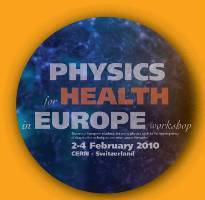Mr
luca maciocco
(advanced accelerator applications)
Feasibility study of an accelerator-driven production of Mo-99 for Tc-99m generators using a high-power LINAC
A compact accelerator-driven neutron activator based on a modified version of the Adiabatic Resonance Crossing (ARC) concept, proposed by C. Rubbia and experimentally demonstrated at CERN in 1997, has been developed with the aim of efficiently exploiting ion-beam generated neutrons for the production of radioactive nanoparticles for brachytherapy using small/medium-size cyclotrons for medical applications. A prototype of the activator is currently operational in JRC-Ispra, coupled with a 40 MeV – 50 uA cyclotron, and a higher scale version, to be coupled with the 70 MeV-350 uA cyclotron of the Arronax centre in Nantes, is under design (THERANEAN project). The experimental results obtained with the JRC neutron activator prototype indicate the feasibility of a cyclotron-driven production of β- emitting radioisotopes for brachytherapy.
The possibility to produce 99Mo through the 98Mo(n,)99Mo reaction induced by the neutrons generated using a high-energy (1 GeV)/high current (~1 mA) LINAC, and moderated/confined with an ARC-type activator has been also explored.
Two Monte Carlo codes (FLUKA, MCNPX) have been used to simulate the system and carry out a preliminary optimization of the system parameters. Activation results and system potential productivity in different configurations were compared with available results on 99Mo production through 235U fission in nuclear reactor. The possibility of an accelerator-driven fission-based production in the activator was also examined.
Results show that the total world demand could be potentially covered with the 98Mo(n,)99Mo production using a 1GeV-4 mA LINAC-driven neutron activator.
Institution
Advanced Accel. Applications
E-mail address
Address
20 rue Diesel 01630 St Genis Pouilly, France
First Name(s)
Please submit a short bio (max 1500 characters)
L. Maciocco, born 1968, holds a degree in mechanical engineering (fluid dynamics and turbomachinery). In 1995 he joined the the CRS4 research centre in Italy where he worked for 7 years, first on the development of Computational Fluid Dynamics (CFD) simulation codes and, starting from 1997, on the thermal hydraulic design of the Energy Amplifier system proposed by C. Rubbia in 1996. During this period he got specialised in the CFD simulation of liquid metals and in spallation targets and Accelerator Driven Systems design.
He joined AAA in 2003 as researcher and cyclotron engineer. He collaborated in the TRiga. Accelerator-Driven Experiment (TRADE) on the design of the proton target.
He has been project manager for the Eureka INBARCA project (Innovative Brachytherapy through Adiabatic Resonance Crossing using Accelerators, 2005 2009) and is currently coordinating the THERANEAN project (THERApy through NEutron Activation using Nanoparticles), both focused on the development of a cyclotron-driven neutron activator for therapeutic radioisotopes production. He is author of several publications on the subject.
Last Name
Telephone
Mr
Nunzio Burgio
(ENEA)
Dr
Stefano Buono
(advanced accelerator applications)
Mr
luca maciocco
(advanced accelerator applications)
Dr
Federica Simonelli
(Joint Research Centre Ispra)
Dr
Kamel Abbas
(Joint Research Centre Ispra)
